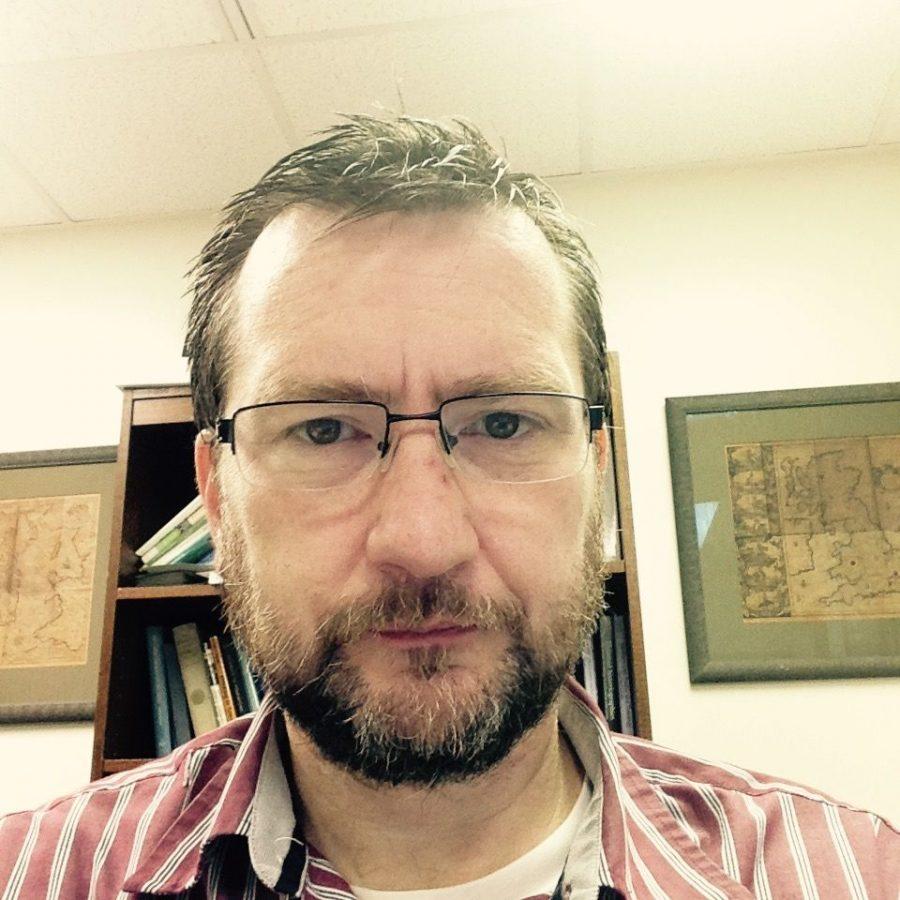New Associate Vice Chancellor’s plans to improve the undergraduate experience
New Associate Vice Chancellor and Dean of Undergraduate Students Dr. Paul A. Townend plans to improve the overall experience of undergraduates as well as encourage faculty to explore more inventive ways of teaching students.
With adjustments to ensure that the new associate vice chancellor and dean of undergraduate studies positions stay focused on their core responsibilities of working to improve the academic undergraduate experience, Dr. Paul Townend described what his plans for the future of UNC Wilmington’s undergraduate programs are, as well as how to increase student involvement.
Townend came to UNCW in 2001 from Villanova University to teach British and Irish history.
“I got involved right away in learning community teaching [a new initiative at the time] and soon became my department’s undergraduate coordinator and curriculum expert,” said Townend. “I also became an advisor for University College and got to know students doing all kinds of majors and programs through that experience.”
During his time at UNCW, Townend has taught online and face to face classes, designed new approaches to teaching, led a couple of different study abroad programs, and was active in developing UNCW’s applied learning programs and ETEAL around campus. He is currently busy helping to review University Studies, the university’s shared undergraduate curriculum.
When it came to applying for the positions of associate vice chancellor and dean of undergraduate studies, it was Townend’s involvement and connections within the university that inspired him to apply.
Townend knew Dr. Martin Posey, who was recently in the position, and Posey suggested that Townend consider applying. Posey mainly approached Townend when he realized he would be moving on to direct the Center for Marine Science.
“The more I looked at the position description,” said Townend, “the more I thought it dealt with [the] issues and parts of the campus I was pretty familiar with and committed to improving.”
One part of Townend’s plans for the future of the undergraduate programs that he is committed to improving is that he will encourage new models of teaching.
“I hope to be able to use my influence to encourage faculty to keep coming up with new and better ways of organizing and teaching our classes,” said Townend. “I would love to see more team teaching, more flexible teaching models and as much encouragement as possible for creative teaching ideas. We need the campus to stay focused through all of our changes on the central needs our undergraduate students have for an academic environment that will challenge and encourage them to thrive as learners.”
Townend also mentioned how the university is well positioned to build on UNCW’s strengths—applied learning, great advising, a strong core curriculum, a growing honors program and an expectation of great undergraduate teaching.
However, encouraging teaching methods and improving upon UNCW institutions are not the only focus of Townend’s plans. Student involvement, inclusion and diversity are all issues Townend addressed.
“I think we need to keep building an academic life that engages and attracts all kinds of students to all kinds of experiences,” said Townend. “College should expand horizons and draw people into new ways of learning in ways that excite and maybe even transform. So we need a diverse faculty, a diverse set of student opportunities around learning and openness to many ways of learning to do that.”
Student involvement and diversity in all of its forms are “inputs for those experiences, but they are also outputs” said Townend.
According to Townend, faculty, departments and programs need to keep being challenged to be creative in developing curriculum, applied learning and academic opportunities, and they need to make sure those opportunities are inclusive and inviting to all students. He thinks student involvement grows out of inclusion and exciting experiences.
Townend plans on improving inclusion and diversity through collaboration with different departments and ensuring that what is taught in a classroom connects to real world experiences.








